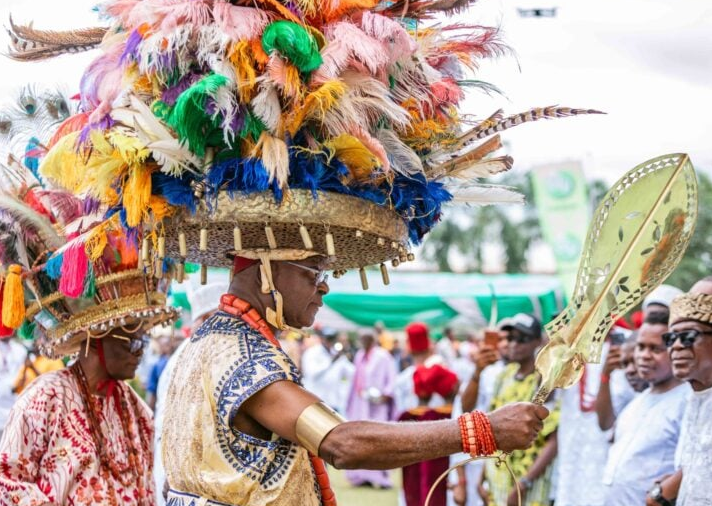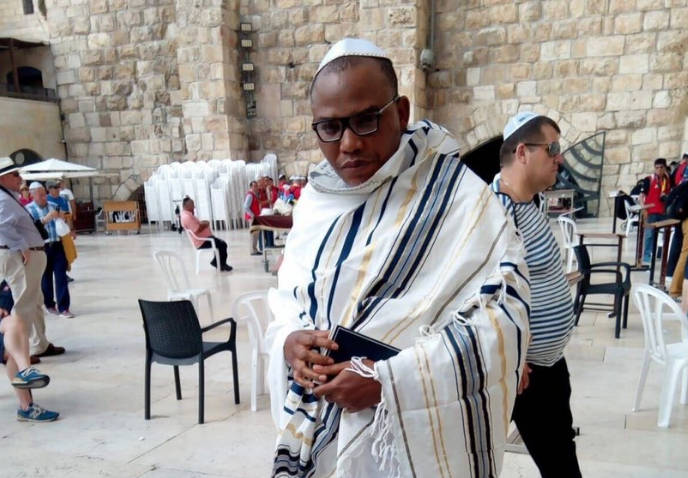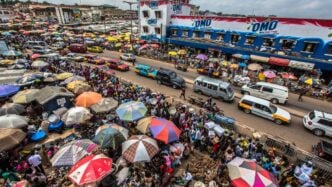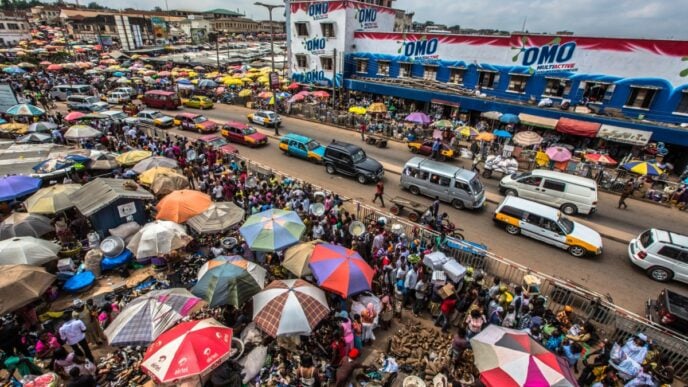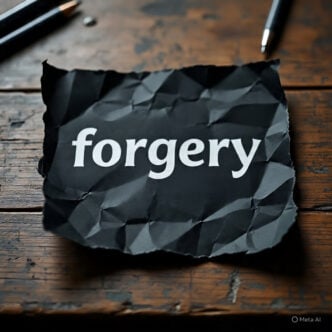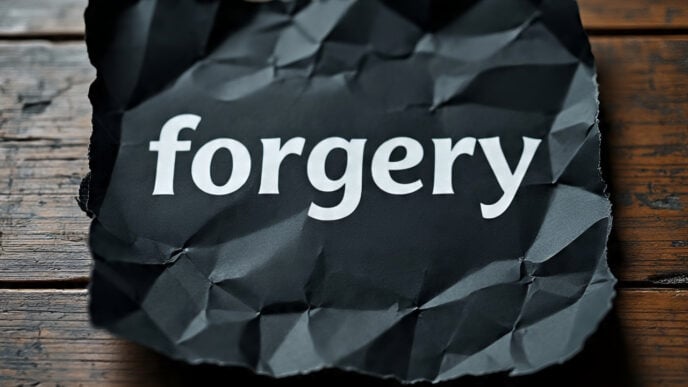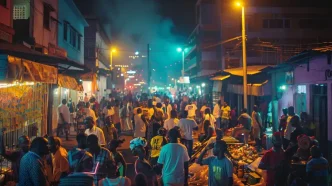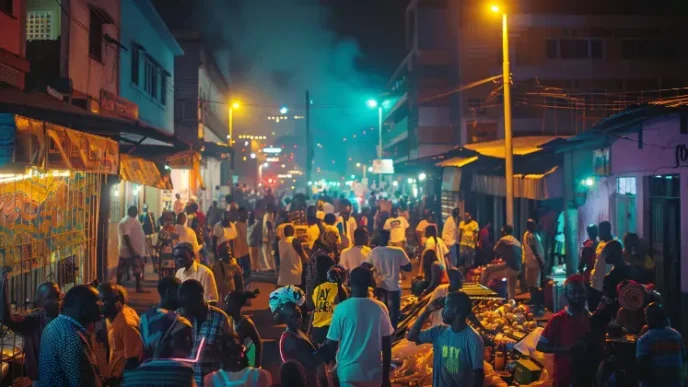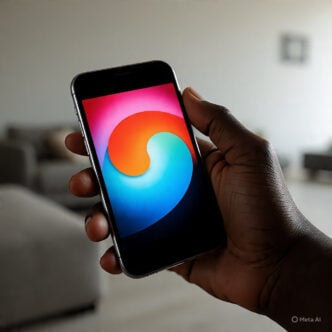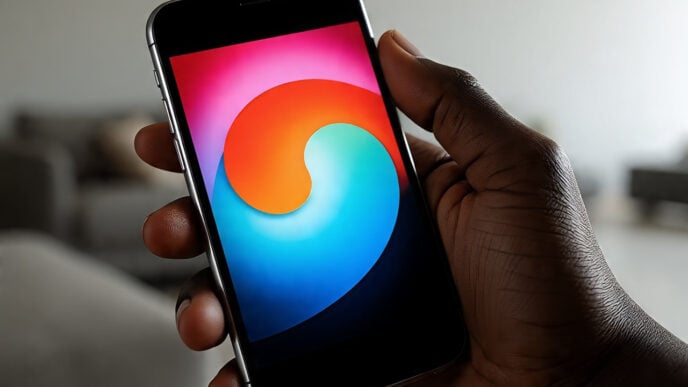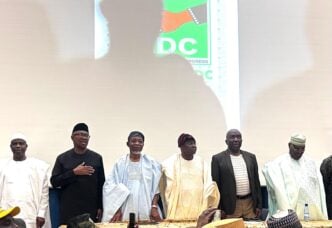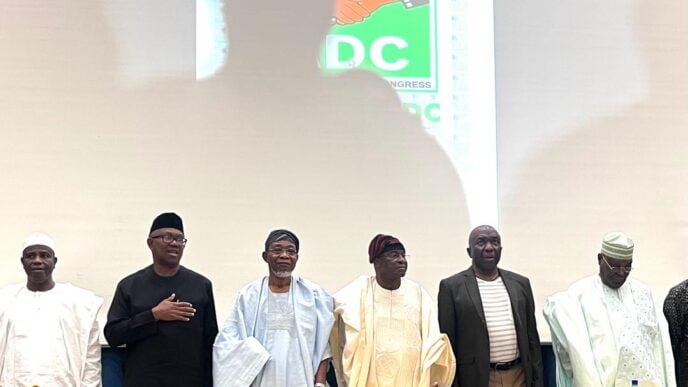BY CASMIR IGBOKWE
As a young boy, I desired to “know masquerade”. In local parlance, it is called “Ima Mmonwu”. An average Igbo man who has come of age knows what this entails. It is an initiation into the secrets or myths surrounding the spirit beings. Such initiation means you are no longer a boy but a full-grown man, and that you can no longer fear or run away from masqueraders. You can even sit down with elders to watch any of their restricted performances.
The day I was initiated was when I got to understand how the spirit beings speak in guttural voices and how they usually emerge like ants from some holes in the forest. Women are not supposed to know this! Unfortunately, civilisation appears to have killed this ancient culture of ours.
Nevertheless, Nigeria is still blessed with a rich cultural heritage. In the north, the country boasts of the Durbar and the Argungu Cultural Festivals. In the South-West, there are the Osun Osogbo and the Ojude Oba Festivals. In the south-east, the New Yam and Ofala Festivals hold sway. Riverine communities in the South-South also celebrate regattas and some colourful carnivals.
Advertisement
Ofala is celebrated by traditional rulers of different communities in the South-East. In Onitsha, Anambra State, it is the ultimate. Dating back to the 16th century, the festival showcases the town’s cultural heritage and represents its unity, royalty, spirituality, and continuity of traditions. It attracts over 500,000 visitors annually. The event, which marks the royal father’s emergence from annual spiritual seclusion, also reaches over 10 million people through extensive media coverage.
The 2025 edition of this customary obligation performed by the Obi of Onitsha, His Royal Majesty, Igwe Nnaemeka Achebe, is scheduled for October 17 and 18. On day one of the festival (Iru Ofala), the Onitsha monarch dances to the rhythmic beats of war drums as he majestically parades the palace grounds three times together with his redcap chiefs called Ndichie. As this is going on, his subjects and visitors pay him homage.
Day two of the festival (Azu Ofala) sees the monarch’s subjects proudly showcasing their vibrant uniforms and performing traditional dances past the throne room. This is organised by age-grade societies.
Advertisement
The chairman of the strategic marketing and communications committee, Nnaemeka Maduegbuna, said this year’s festival would showcase a lecture series, carnival, yam festival (owuwaji), art exhibition, and medical outreach, among others. There would also be a royal banquet to be hosted in honour of Igwe Achebe on October 22.
The Oreze Art Exhibition Series is to promote African art and foster community development. The Obi of Onitsha established it in 2013 through the Chimedie Museum Trust Foundation. The series features an array of works by local and international artists. It showcases paintings, sculptures, and ceramics.
The carnival highlights Onitsha’s vibrant heritage. Seen as the South-East’s largest street festival, it features the community’s traditional outfits, dances, and entertainment. A regular feature is cultural costumes from across the country.
The yam festival (owuwaji) is the community’s most joyous festival. Traditionally held during peak yam harvest time, the yam festival spans eight weeks in four phases around the Ofala period.
Advertisement
‘Ogbalido’ is the feast of atonement. It involves Ndichie and big game hunters rejuvenating themselves. Senior redcap chiefs also use the occasion to review their subordinates.
Globacom has been a major player and sponsor of the Ofala Festival since 2011. The aim, according to the company, is to ensure each edition shines brighter, touches more lives, and uplifts our collective spirit. This year, it renewed its partnership with the Palace and the Ofala Festival Steering Committee for another three years. The company believes that tradition and innovation go hand in hand. It believes that festivals are not just culture on display, but are also engines of identity, creativity, commerce, and tourism.
By throwing its weight behind Ofala Festival of Onitsha in the South East and Ojude Oba in the South West, Globacom is helping project Nigeria’s rich cultural heritage to the world stage and global reckoning.
“While we continue to embrace globalisation and digitalisation, we must preserve our identity. As the late literary icon, Prof. Chinua Achebe noted, ‘A people without knowledge of their past history, origin and culture is like a tree without roots.’ In celebrating Ofala, therefore, we honour the humanity and dignity of our past, even as we invest in our shared future,” Globacom stated.
Advertisement
Tourism is an area Nigeria needs to expand to grow its non-oil economy. The country has depended so much on oil and needs to diversify. Gladly, the non-oil sector has started showing some promise. In the second quarter of 2025, the sector contributed 95.95 per cent of the overall share of Nigeria’s real Gross Domestic Product (GDP). The sector grew by 3.64 per cent in the second quarter of 2025, as against the 3.26 per cent in the corresponding period of 2024.
It is projected that the tourism sector will contribute N11.2 trillion to the GDP. In 2024, the sector contributed N10.9 trillion to the GDP. While international visitor spending is estimated to reach N803.2 billion, domestic tourism spending is expected to be about N6.1 trillion. This goes to show that culture and tourism are vital to our economy and our future.
Advertisement
With adequate security, reforms and private sector investment in cultural promotion, like Globacom is doing, Nigeria could make tourism a major money spinner.
In countries like the United States, China, Spain, and France, tourism is a major driver of economic growth. In 2024, the US economic contribution from tourism was about $2.36 trillion.
Advertisement
In Kenya, the travel and tourism sector is projected to contribute over seven per cent of the GDP in 2025. In Morocco, it contributed 12.3 per cent in 2024. But in Nigeria, it contributes less than 4 per cent of the GDP. The federal government targets $1trillion economy by 2030. Tourism should be made to contribute more to that projection.
As part of its broader belief that investment in culture yields returns beyond the balance sheet, builds communities, jobs, local businesses and pride, Globacom supports the Ofala Festival in various ways. To make this year’s edition special, it is packaging a special promotion for subscribers with prizes ranging from tricycles to sewing machines and grinding machines. It has promised to continue with aggressive rollout and upgrade of network infrastructure across Nigeria, especially 4G-LTE. This is to enable subscribers to enjoy enhanced experience on the network on both voice and data services.
Advertisement
Earlier on Monday, September 22, 2025, the company launched two new customer-friendly products – ‘Talkmasta 6 for 6’ and ‘Welcome Bonus’. The first one was designed to automatically give customers who make six minutes of local calls to any network six additional free minutes, which can be used to call any local network and free 50MB. The second one gives new subscribers who register a Glo SIM a one-time welcome package worth N2,000. This translates into free N1,000 airtime, equivalent to 25 minutes of calls to all networks and free N1,000 data, equivalent to 1GB of browsing, valid for seven days. The company promised to continue to “stand where culture meets innovation, where the past inspires the future.”
Since Globacom started operations in Nigeria on August 29, 2003, it has contributed a lot to the growth of the economy and empowerment of Nigerians in various ways. It pioneered per-second billing when other telecommunications companies said it was not possible. It crashed the cost of acquiring SIM cards from about N25,000 to about N200. Blackberry Services, Multimedia Messaging Service (MMS), International Prepaid Roaming and Mobile Banking Services were some other innovations of the company. Glo’s undersea cable, which delivers faster and robust connectivity for voice, data and video, has crashed the cost of internet services. It was the first in Africa to build this international submarine cable single-handedly.
For all those planning to attend this year’s Ofala Festival, adequate arrangements have reportedly been made to ensure a spectacular event, including security and the comfort of all the visitors. No doubt, the experience from this event is bound to literally transport these visitors to the spirit world!
Views expressed by contributors are strictly personal and not of TheCable.
